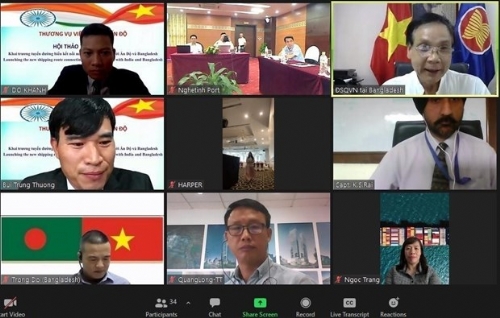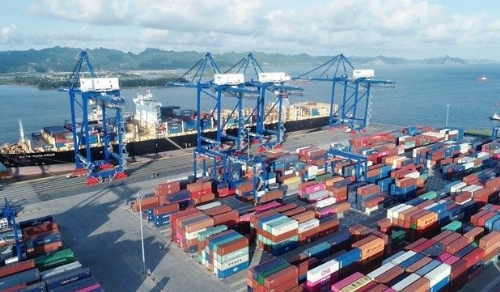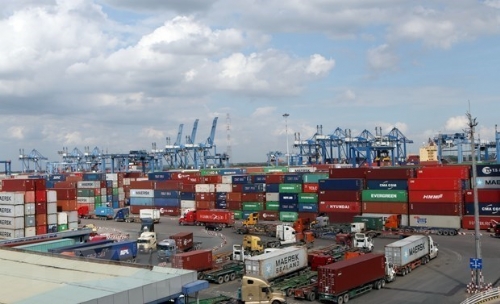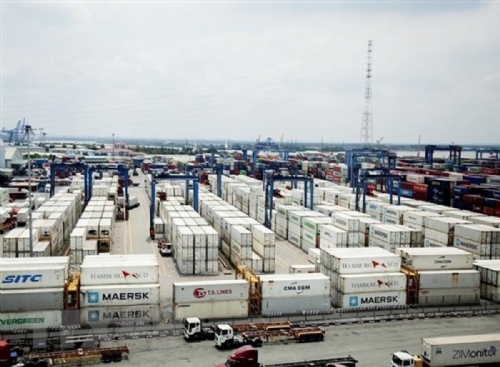VCCI EVENTSRules of origin of goods in the Free Trade Agreement between Vietnam and the European Union (EVFTA)
Tuesday, July 14, 2020 10:02
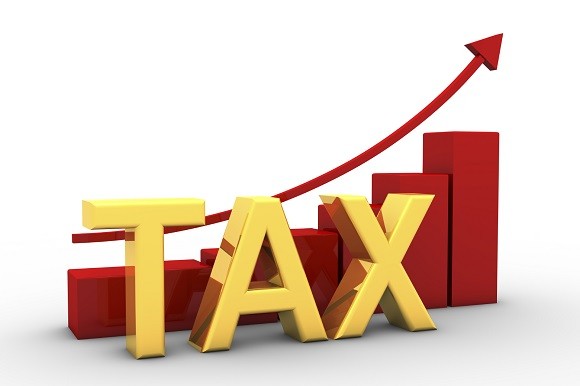
The Ministry of Industry and Trade has just issued Circular No. 11/2020 / TT-BCT dated June 15, 2020 regulating rules of origin of goods in Free Trade Agreement between Vietnam and the European Union (EVFTA).
The Circular has 05 Chapters, 42 Articles and 08 Annexes attached.
Under the provisions of the Circular, products shall be considered as “originating” in a party – and therefore eligible for preferential duty treatment under the EVFTA – where (i) the products are “wholly obtained” in a party; or (ii) the products that are not wholly obtained, but non-originating materials have undergone sufficient working or processing in a party.
The Circular specifies 13 cases of goods considered as wholly obtained in a party, including: Mineral products extracted from the underground or seabed of a party; crops and crop products (including crops, flowers, fruits, vegetables, seaweed and mushrooms) grown and harvested or gathered in a party; Live animals breeded and raised in a party; Products of live animals nourished in a party; Products obtained from slaughtering animals breeded and raised in a party; Products obtained from hunting or fishing in a party; Products obtained from aquaculture where fish, crustaceans and molluscs are breeded or raised from eggs, fry, small fish and larvae; Catches and other products obtained outside the territorial waters by vessels of a party; Products manufactured on board of a party from catches and other products obtained outside its territorial waters by vessels of a party; Used products obtained from a party are only suitable for recycling into raw materials; Waste and scrap derived from production in a party; Products taken from the seabed or beneath the seabed outside the territorial sea but within the exclusive economic zone of a party; Goods manufactured entirely in a party from all the above products.
It should be noted that the concepts of "One Party’s vessel" and "One Party’s processing ship" apply only to ships and processing vessels that meet one of the following conditions: (i) are registered, flying the Vietnamese flag or that of a Member State of the European Union and having at least 50% owned by individuals in one party; (ii) be registered, fly the flag of Vietnam or a Member State of the European Union and is owned by the legal entity with the head office and main business establishment located in one party. Legal entities are at least 50% owned by Vietnam or a Member State of the European Union or of State Organizations and individuals of one party.
Not wholly obtained products are those undergone full processing or processing that meet the commodity specific rules specified in Annex II attached to the Circular.
For raw materials used to produce products or goods, the above item-specific rules apply only to non-originating materials.
In the case of a product originating in accordance with the provisions of Annex II attached to the Circular, it is then used as raw material for the production of other products, origin criteria of other products do not apply to products used as raw materials and not to non-originating materials involved in the production of products used as materials.
In order to prove the origin of goods to apply for C/0 or to issue self-certificate, documents specifying the manufacturing process or processing is carried out by the exporter or manufacturer are required (for example internal reports or accounting records); documents used to show the origin of materials issued or declared in a a party in accordance with current regulations; documents proving the processing or processing of raw materials, issued or declared in a party in accordance with the applicable regulations; documents certifying the origin of raw materials, issued or declared in a party according to the provisions of the Circular 11/2020/TT-BCT.
In addition, the Circular also specifies the mechanism of certification of goods origin, the declaration and issuance of C/O form EUR.1 as well as the regulation of self-certification of goods origin from the European Union and from Vietnam.
Documents certifying the origin of goods are valid for 12 months from the issuance date in the exporting party and must be submitted to the customs authority of the importing party within the period of validity. Documents certifying the origin of goods submitted to the customs authority of the importing party after the expiry of the validity period may still be accepted for enjoying the EVFTA preferential tariff in case the importer is unable to submit such documents within the validity period due to force majeure or other valid reasons beyond the importer's control.
In order to enjoy the EVFTA preferential tariffs, certificates of origin of goods must be submitted to the customs authority of the importing party in accordance with the regulations of that party. Customs authorities may request a translation if the C/O is not in English.
The Circular takes effect from August 1, 2020.
Other news
- Shipping route connecting central Vietnam, India inaugurated(7/29/2022 11:22:05 AM)
- List of seaports of third-class and higher announced(7/18/2022 11:17:01 AM)
- HCM City approves 50% port infrastructure fee cut(7/12/2022 1:59:05 PM)
- Cai Mep port ranked 11th among the world’s most efficient container ports(6/13/2022 3:21:56 PM)
- Cargo throughput via seaports sees modest growth(5/25/2022 1:55:23 PM)
- USAID helps ease congestion at Cat Lai container port(5/23/2022 2:46:53 PM)
- Cua Lo Port receives first international container ship(5/6/2022 11:02:29 AM)
- Cargo through seaports rises 3 percent in four months(5/4/2022 10:40:35 AM)
- Vietnam seeks ways to boost logistics industry(5/4/2022 10:37:17 AM)
- Vietnam's logistics must keep up with international standards(4/26/2022 11:40:15 AM)


